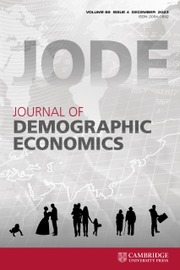No CrossRef data available.
Article contents
Special Issue on Climate Migration
Published online by Cambridge University Press: 09 June 2021
Extract
How do weather shocks influence human mobility and poverty, and how will long-term climate change affect future migration over the course of the 21st century? These questions have gained unprecedented attention in public debates as global warming is already having severe impacts around the world, and prospects for the coming decades get worse. Low-latitude countries in general, and their agricultural areas in particular, have contributed the least to climate change but are the most adversely affected. The effect on people's voluntary and forced displacements is of major concern for both developed and developing countries. On 18 October 2019, Agence Française de Développement (AFD) and Luxembourg Institute of Socio-Economic Research (LISER) organized a workshop on Climate Migration with the aim of uncovering the mechanisms through which fast-onset variables (such as weather anomalies, storms, hurricanes, torrential rains, floods, landslides, etc.) and slow-onset variables (such as temperature trends, desertification, rising sea level, coastal erosion, etc.) influence both people's incentives to move and mobility constraints. This special issue gathers five papers prepared for this workshop, which shed light on (or predict) the effect of extreme weather shocks and long-term climate change on human mobility, and stress the implications for the development community.
- Type
- Introduction
- Information
- Journal of Demographic Economics , Volume 87 , Special Issue 3: Climate Migration , September 2021 , pp. 289 - 291
- Copyright
- Copyright © Université catholique de Louvain 2021


